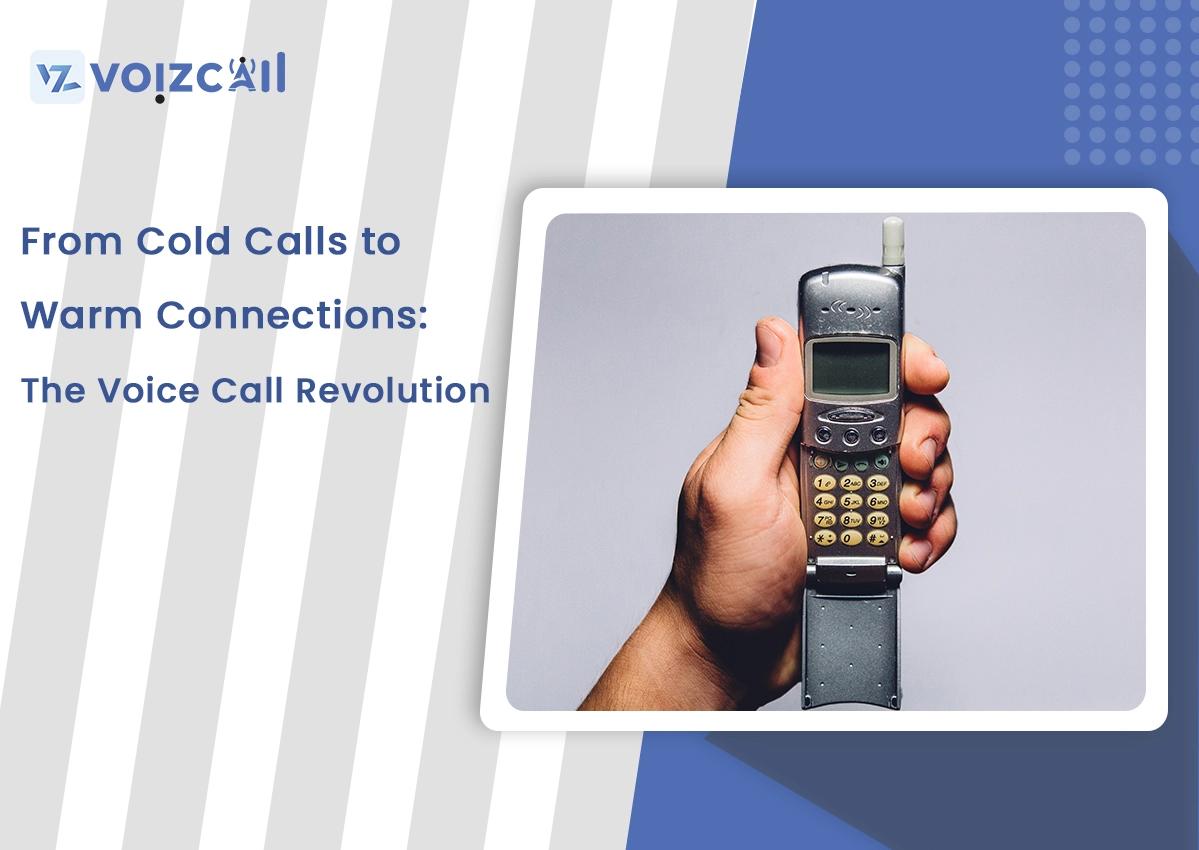


20/Oct/2023
In an age where digital communication reigns supreme, there's something profoundly impactful about the sound of a human voice. It transcends the cold, impersonal nature of text messages and emails, creating a sense of warmth and connection. This article delves into the transformative journey from the days of cold calls to the rise of warm connections through voice calls.
The Cold Calling Era: What It Was Like
Not too long ago, businesses relied heavily on cold calls to reach potential clients. Sales representatives armed with scripts would dial numbers at random, hoping to strike a chord with a stranger on the other end. The process was tedious, time-consuming, and often unproductive.
The Limitations of Cold Calls
Cold calls had their limitations. Receiving an unsolicited call from an unknown number often led to frustration for the recipient. Many potential clients would simply hang up or refuse to engage. The lack of personalization and a genuine connection made cold calling an uphill battle.
The Emergence of Warm Connections
The voice call revolution started when businesses realized the need for a more personal touch. Instead of bombarding people with scripted monologues, companies began focusing on building relationships. Warm connections became the new goal, where communication was genuine and respectful.
The Voice Call Revolution: A New Beginning
The shift towards warm connections marked a new beginning in the world of business communication. Voice calls were no longer about selling; they were about connecting. The emphasis shifted from the quantity of calls to the quality of conversations.
Human Touch in a Digital World
In a world dominated by emails and chatbots, the human touch provided by voice calls became a rare commodity. People began to appreciate the authenticity of a real conversation. It was a way to break through the digital noise and establish a personal connection.
Leveraging Technology for Warm Calls
Technology played a crucial role in making warm calls efficient. CRM systems and analytics allowed businesses to understand their customers better. Calls could be tailored to individual preferences, making each conversation feel unique.
Building Trust through Voice Communication
Warm connections are built on trust. Voice calls allow for the subtle nuances of communication, such as tone and intonation, that are impossible to convey through text alone. This trust was the cornerstone of successful relationships.
Benefits of Warm Connections
The benefits of warm connections are numerous. From higher conversion rates to increased customer loyalty, businesses found that investing in genuine relationships paid off. It was no longer just about closing a sale; it was about creating a long-lasting partnership.
From Sales to Customer Relationship Management
The focus shifted from sales to customer relationship management. Businesses realized that a satisfied customer was more likely to become a repeat customer and a brand advocate. This marked a significant change in the way companies approached customer interactions.
The Importance of Tone and Intonation
The way a message is delivered matters as much as the message itself. Voice calls allow for the conveyance of emotions and intentions, making the conversation richer and more engaging. Tone and intonation became essential tools in building warm connections.
Real-Life Success Stories
Countless businesses have reaped the rewards of the voice call revolution. Case studies and success stories serve as testaments to the power of warm connections. From startups to established corporations, the impact is undeniable.
The Future of Voice Call Revolution
The voice call revolution is far from over. With the integration of AI and data-driven insights, the potential for even more meaningful connections is on the horizon. Businesses are continuously adapting to embrace new technologies and stay connected in a rapidly evolving world.
Challenges and How to Overcome Them
While the benefits of warm connections are clear, there are challenges to be faced. Privacy concerns, spam calls, and the need for effective training are some of the hurdles businesses must navigate.
Conclusion: Embracing the Voice Call Revolution
In a world that's increasingly digital, the voice call revolution reminds us of the power of authentic human connection. From cold calls to warm connections, the journey has been transformative. Embracing this revolution is not just about improving business outcomes but also about making the world a friendlier, more connected place.